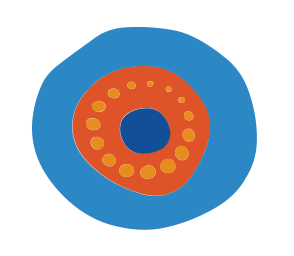What support do foster carers receive?
All our foster carers receive 24/7 support and ongoing training opportunities. Our foster carers are part of a larger team of caseworkers, program managers and other service providers who all work together to achieve the best outcomes for the child.
Do foster carers get paid?
Foster care is a volunteer position and carers do not receive remuneration. However, to help cover the costs of caring for a child or young person, foster carers in NSW receive a fortnightly allowance for items such as food, clothing, gifts and travel expenses.
Is being a foster carer challenging?
Yes. Foster children come to every placement having experienced difficult life experiences, including separation, grief, loss and trauma. These children and young people will often exhibit behaviours that can push the boundaries, and they need carers who are patient and compassionate.
But while fostering a child or young person can be challenging, it’s not something you undertake alone. All our foster carers are part of a larger team of caseworkers, program managers and other service providers who all work together to achieve the best outcomes for the child. All our foster carers receive 24/7 support and ongoing training opportunities.
Do foster children always return to their birth families?
While family preservation and restoration is the goal of all the work we do, sometimes children and young people require out-of-home care to meet their social, emotional and behavioural needs and can never return to their birth families.
I do not identify as Aboriginal or Torres Strait Islander. Can I become a carer?
Narang Bir-rong Aboriginal Corporation promotes the placement of Aboriginal and Torres Strait Islander children with people within their kinship line or with Aboriginal community members. Non-Aboriginal people can become carers if they have an understanding of Aboriginal and Torres Strait Islander culture and can positively promote an Aboriginal child’s identity.
Can I be a carer if I’m single?
Yes. Foster carers can be single, married, de facto or part of a family.
We are a same-sex couple – can we be carers?
Yes, foster carers can be of any sexual orientation.
I’ve never had children – can I be a carer?
Yes. While experience with children can be extremely beneficial, it is not essential.
Do I need to be an Australian citizen?
Yes, you must be an Australian citizen or permanent resident.
Can foster carers be any age?
Carers must be between 21 and 65 years of age.
I am renting; can I be a carer?
Yes. As long as the home is stable and safe, renting or owning your home does not affect your eligibility to become a carer.

Our Support
Fostering a child can be a long, hard journey, but it’s not something you need to undertake alone. Our caseworkers offer 24/7 support and advocacy, as well as ongoing training opportunities and assessment reports.

Foster Care Stories
Sharing the stories of our foster carers allows us to tell you about the real impact we have. The patience, compassion and perseverance of our carers are truly inspiring, and show how we can bring tangible and positive change to the lives of children and young people in our care.




